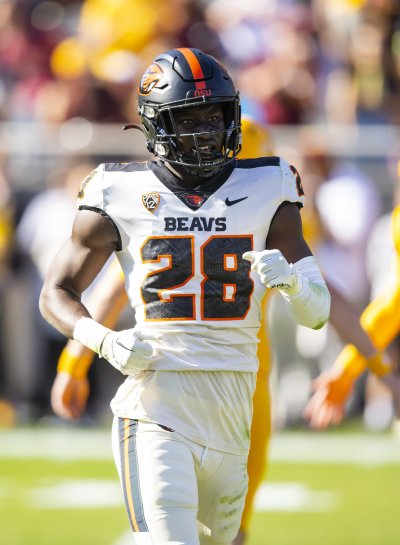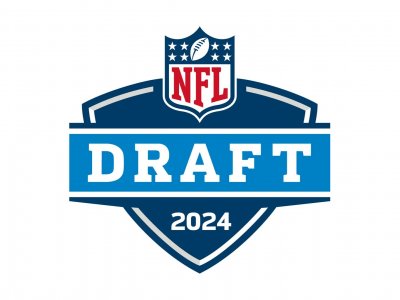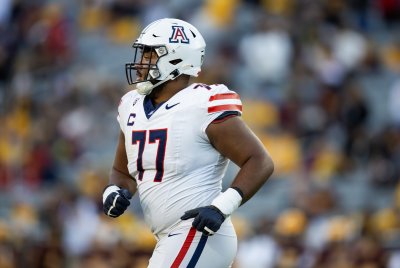The Offbeat Tale of KGB
The career of new Packer Hall of Famer Kabeer Gbaja-Biamilia was an offbeat one. Who knows what it might have been if he had been allowed to stay in his role as a pass-rush specialist. One person who probably doesn't care: KGB.
By tundravision
Curse you, Joe Johnson.
Long considered one of the primary exhibits in the case against Mike Sherman The GM, the free agent signing of the former Saint defensive end was a major bust for the Green Bay Packers. Combined with other defensive line snafus (Exhibit #2: Jamal Reynolds, Exhibit #3 Cletidus Hunt), a Packer team with a lot of potential in 2002, 2003, and 2004 always came up just a little bit short in the playoffs.
But, with the induction of former standout pass rusher Kabeer Gbaja-Biamilia into the Packer Hall of Fame this weekend, you wonder about some of the other ripple effects that Johnson flop had on the players around him. Personally, I think it forced the Packers to make a full-time player out of KGB, a move that would define the rest of his career.
By all accounts, Kabeer Gbaja-Biamilia was not your typical NFL player. Diagnosed with Attention Deficit-Hyperactivity Disorder (ADHD) while in college, he became notorious for player meeting question-a-thons, needing explaining and re-explaining of certain details. His Mike Tyson-esque voice always seemed to be set a notch or two too loud, and he didn't seem one bit embarrassed showing off his videos of himself in full Michael Jackson attire dancing to "Billie Jean". Not for charity or to be funny...because he really LIKED Michael Jackson.
Because he sometimes set himself apart from his teammates (and took plenty of obligatory teasing), he once claimed his best friend on the team wasn't a fellow player or even a coach, but Betsy Mitchell, the team psychotherapist that he consulted at least once per week.
But for all his behaviors that set him apart, he might have had more in common with the regular folk, making him a fan favorite. At a lanky 230 pounds, you might not have even guessed he was an NFL football player had you run into him at a restaurant. He never seemed to have a filter, saying (loudly) whatever was on his mind, making him a favorite among the Packers' beat writers, too.
But this player had an amazing gift. Even though he was a "tweener", too small to play on the line and out of place among the linebackers, he had an amazing burst of speed that allowed him to develop into one of the most valuable third-down pass rushers in the NFL. In 2001, he finished with 13.5 sacks in that specialist role. His change-of-pace took offensive linemen who had been pummeled by 290-lb. Vonnie Holliday or 265-lb. John Thierry back on their heels as he blew past them.
It was a productive setup. He earned those 13.5 sacks while playing in only 36% of all defensive snaps. While I'm the first one to declare that sacks are perhaps the most overrated statistic out there, you can't deny that he put pressure on the quarterback.
But things changed in 2002. Still projecting KGB in his specialist role, Sherman doled out the bucks for veteran Joe Johnson to do the softening up of the linemen on running downs. In Week 5, Johnson suffered an arm injury that ended his season. With Reynolds still mysteriously on the inactive list every week, Gbaja-Biamilia was thrust into a starting position and finished the season. With his sack totals still leading the team (12), the decision was made to make KGB a full-time starter.
But the increase from 36% of snaps to nearly 100% of the snaps didn't produce three times the sacks. In fact, it took him until 2004 to just get back to his part-time total of 2001. But on the field, it was becoming more and more evident that instead of having a 290-lb end wearing down the offensive tackle, it was KGB who was getting worn down. Efforts to get his weight up not only took away his primary asset of speed, it was impossible for him to maintain it. Perhaps it was a side effect of his ADHD: an increased metabolism. Even when he got his weight up to 250 for training camp, it was always back down to 230 by the start of the season.
The criticism started to increase as Sherman's tenure came to an end, as play after play Kabeer was swallowed up by blockers on run plays and tackles quickly adapted to his speed move on passing downs. He would get his sacks, but at times they weren't needed, or in bunches in games that were already put away. The constant pounding on his body as an every-down player took its toll on his speed.
By 2006, the Packers had brought in Cullen Jenkins to be their primary defensive end, a more well-rounded player who could play both the run and pass, and regulated Gbaja-Biamilia back into his specialist role. But with age and the pounding he had taken as a full-time end, his playing time became smaller and smaller as time went on. By 2008, the Packers decided to cut Gbaja-Biamilia mid-season.
Even then, KGB didn't react like the typical NFL player, as Mike Vandermause wrote in his article in Saturday's Green Bay Press-Gazette.
Imagine getting fired and then hugging the boss who broke the news. That’s exactly what happened when KGB left the Packers.
He hugged Packers General Manager Ted Thompson on the way out the door and thanked him for the opportunity to play for the team.
“I even went back to Ted, and said, ‘Hey Ted, I just want to let you know, I know you’ve gone through a lot with the whole Brett Favre situation,’ ” recalled Gbaja-Biamila. “But if I had to have somebody let me go, I’m glad it was you. It was kind of crazy. … I know that Ted really cares about this team. He wants to do (what’s) best for this team.
“I just gave him a hug and just truly wished him well. He said he really appreciated it.”
Gbaja-Biamilia took the end of his career with grace. He didn't try to latch on with another team or blast his old one out of spite. And with that, the man forever enshrined in the Packer Hall of Fame as a ghostly player riding a bicycle would remain in Green Bay, living out a normal man's life until the day arrived that he would be officially enshrined.
Maybe Gbaja-Biamilia is at peace with his career, but I do step back and wonder sometimes how things might have been different had Mike Sherman adequately placed some strong defensive ends ahead of KGB in the early naughts. KGB might have been able to add a lot more sacks to his franchise-leading 74.5. Maybe it sounds greedy or grasping, but had he stayed in his specialist role all those years, not only could he have continued to rack up the sacks, his actual career might have lasted longer.
Curse you, Joe Johnson.
As for me, well, it's my job to look back and think of those woulda's, coulda's, and shoulda's. And I'm sure there are many retired NFL players who spend a lot of time obsessing on those same possibilities as they look back on their careers.
But you get the feeling that KGB isn't the kind of guy who has spent a moment thinking that way, angry at the hand he might have been dealt, imagining how much better his career might have been if Mike Sherman hadn't run out of cards and decided to play a 230-pound tweener at defensive end.
“Seeing the whole Brett (Favre) deal, I already knew that no one is above the game,” Gbaja-Biamila said at his induction ceremony Saturday night. “I knew that one day I’d be there and then I’d be gone, and life would just keep on going.”
It makes you step back and appreciate Kabeer Gbaja-Biamilia all the more, his zen approach to the game, his career, and life. As we are dealing with the continued aftermath of Favregate and the bitter verbal grenades left by Greg Jennings and Desmond Bishop, you realize that KGB wasn't your normal kind of NFL player. He was different, in many ways.
But he was special. And he appreciates every thing he has and has received in life. Maybe, there's a lesson we can all learn from the newest member of the Green Bay Packer Hall of Fame.
Pardon me if I leave my single sequined glove at home, though.













Comments (8)
July 21, 2013 at 08:26 pm
and the man has "beer" in his name. What could be cooler for a man playing football in Wisconsin?
July 21, 2013 at 08:43 pm
I'm going to be honest. .. This is worth every minute of my time. ... Anyone who can't appreciate this article can't appreciate good journalism... It's night and day from the previous page... This is a factual representation of KGB without any created drama or ulterior motivations... It should be published somewhere (hard copy).
IMO, KGB was a dedicated player and person. I doubt he has ever had an enemy. ... That's obvious just reading this.
July 21, 2013 at 09:31 pm
Not only did KGB not run off to the Vikings in a huff, chasing pride and dollars, but he's one of the few Packers who decided to stay in Green Bay after retiring. He's active in the community and a local Christian school. I met him once, a real friendly down-to earth guy who understands that there's more to life than the NFL lifestyle.
July 23, 2013 at 06:13 am
Here here. I had no idea of a lot of this. A Packer hall of famer. When I read a story like this and think of the support and the boost to his post football life. Maybe I am wrong. Maybe there is a little Valhalla here.
July 22, 2013 at 12:18 am
I often wondered what KGB's career would have been like if the Packers had switched to a 3-4 while he was still in his prime. To me, the switch came a few years too late.
tundravision
July 22, 2013 at 09:07 am
Never thought of that. Interesting.
July 22, 2013 at 10:30 am
By the time the Pack made the switch the league was about 50/50, so some of the advantage of looking for "different" players was gone as well. Anyway, I had that thought a lot as the Packers struggled to find enough great Dlineman in the 2000s. KGB, to me, he always should have been a 34 OLB.
tundravision
July 22, 2013 at 10:59 am
It would have been the time. I was most critical of the switch to the 3-4 simply because half the league had already done it. You want to be on the front end of a trend, not the back end. Switching when Sherman first took over might have been genius.